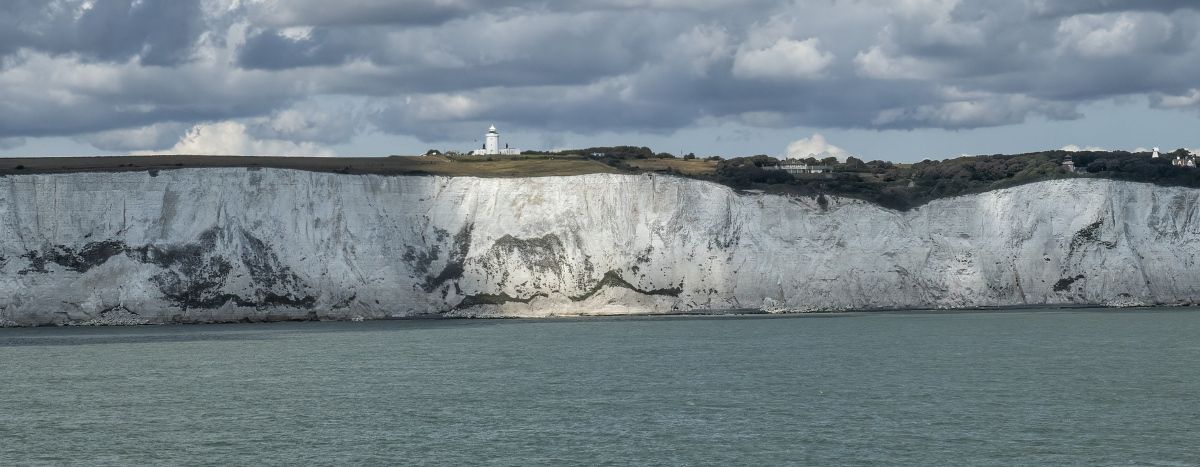
'Fortress Britannia' isn't just a slogan. It's costing lives
Published on
Translation by:
Faith WilliamsLast winter a Kurdish-Iranian family died while attempting to cross the sea between France and the UK. They weren't the first such casualties and, unfortunately, it looks like they won't be the last. Brexit is only exacerbating the situation.
On 27 October 2020 a Kurdish-Iranian couple, Rasoul Iran-Nejad and Shiva Mohammad Panahi, tried to cross the English Channel to reach the UK along with their children Anita, Armin and Artin. The boat they were in sank, and they drowned. This was not an isolated tragedy. The family were the latest victims of what many in the media have termed 'Fortress Britannia.'
Hundreds of migrants and refugees in Calais and Dunkirk who wish to reach the UK are forced to rely on smugglers or else take risky journeys on their own initiative. The death of this latest family came just a few days after the first anniversary of the discovery of the lifeless bodies of 39 men, women and children of Vietnamese origin who were found inside the refrigerated hold of a cold goods lorry in Essex on 23 October 2019.
"people feel they have no alternative than to undertake this terrible journey"
In an interview which aired on the BBC on 28 October, Clare Moseley, founder of Care4Calais, an NGO operating in the north of France, has called for urgent reforms to the asylum process, emphasising how "ordinary people feel they have no alternative than to undertake this terrible journey."
According to research from the Institute of Race Relations titled “Deadly Crossings and the Militarisation of Britain’s borders”, 300 asylum seekers have died over the last twenty years in attempts to reach the UK from the North of France. Among the victims, there are 36 children. The report, which was produced in collaboration with Maël Galisson of Gisti (a legal assistance service for asylum seekers in France) and the Permanent People’s Tribunal London, is the first attempt to give a face, a name and a story to victims of this particular frontier.
We often talk about shipwrecks and deaths at sea. Yet in the British-French context such cases are dramatically outnumbered by those of people that have died as a result of being hit by trains, cars or lorries. Take Ahmed Osman, for example, a 17-year-old Eritrean boy who died as soon as he arrived in the UK in 2014, under the wheels of the truck that he had clung to in order to reach the country.
A far-right drift
Why is crossing the Channel so dangerous? Part of the answer is the result of an agreement between France and the UK known as the Sandhurst Treaty of January 2018, which was signed by President Emmanuel Macron and the former-Prime Minister of the UK, Theresa May and countersigned by the Interior Ministers of the two countries at the time, Christopher Castaner and Sajid Javid. The agreement, in line with preceding arrangements, outlines coordinated maritime and land deterrents, and allocates funds for investments to be made in further security technologies on French soil. Three years on, the British Home Office's approach has certainly not changed. On the contrary, the current Interior Minister, Priti Patel, has made her political career by appealing to vehement anti-migrant rhetoric.
In an interview with the Daily Telegraph, Dan O’ Mahoney, an ex-Royal Marine, said that current proposals include nets and water canons to block boats in the Channel, as well as the imprisonment of migrants on oil platforms (before transferring them to a British owned territory in the South Atlantic for further processing). This scenario comes in the wake of Patel's declaration that the current system is not working and that she wants to make British asylum "firm but fair."
As part of this changing policy, professionals within the British legal industry who have previously challenged deportation warrants are now facing unprecedented attacks. These have come not only from Patel, but from the Prime Minister Boris Johnson himself. That's not all. Shortly after Patel's first statements on the subject, a man named Cavan Medlock turned up at the offices of a London law firm focused on migration issues armed with a knife and exhibiting both a Nazi flag and a United States Confederate flag. Medlock now faces six charges, including preparing an act of terrorism.
Finally there is the question of the media. Faced with the pandemic and the heated rhetoric of a ‘Hard Brexit’, some outlets, such as the BBC and Sky News, have 'spectacularised' the landings on British coasts. By doing so, however, they have only galvanised the far right, whose activists recently descended on the coastal town of Dover in order to attack buildings inhabited by migrants and asylum seekers.
This piece is published as part of an editorial partnership with QCodeMag. The article, which was edited by Angelo Boccato, and re-edited by Cafébabel, was originally published here. by QCodeMag on 3 November 2020.

Translated from Tratta migratoria tra Francia e Regno Unito: una Manica di rischi



